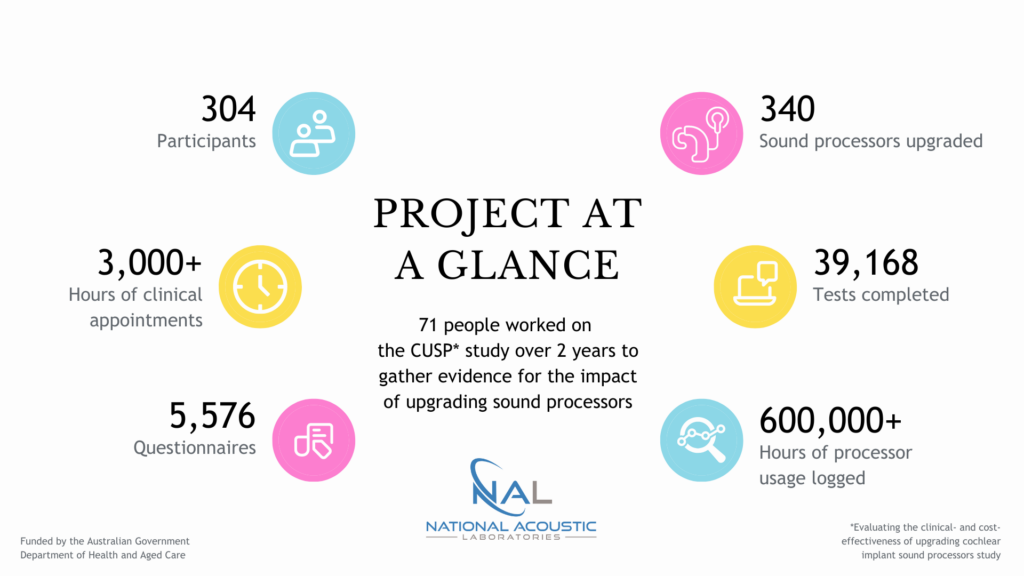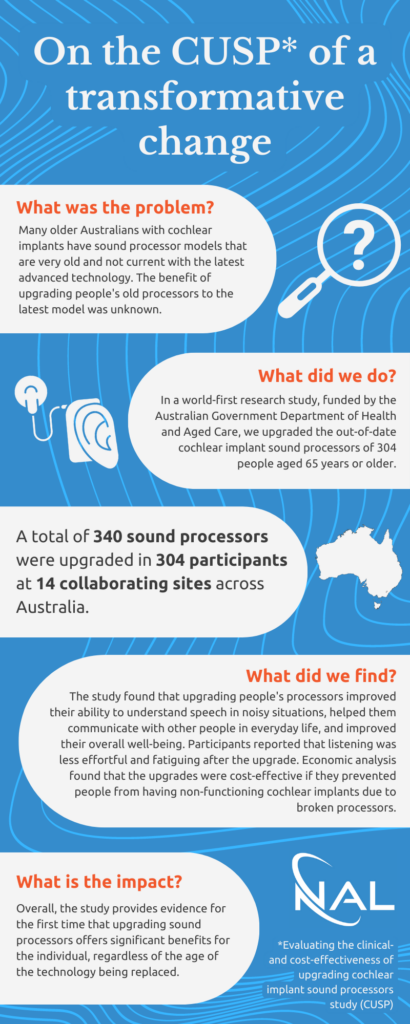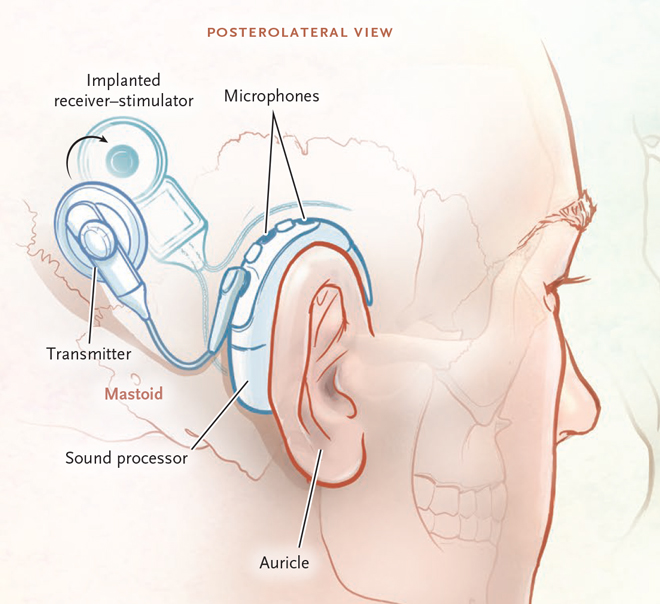Cochlear Implant Processor Upgrade (CUSP)
Project rationale
Cochlear implants are recommended for adults who have severe to profound hearing loss and are unable to get enough benefit from hearing aids. The cochlear implant system consists of two main parts: the ‘cochlear implant’ that a surgeon inserts into the inner ear (‘cochlea’), and ‘sound processor’ that is worn behind the ear or on the head. The sound processor picks up sounds with a microphone and then sends information about those sounds to the implant. The implant makes small pulses of electricity that cause nerve cells in the hearing nerve to send that information to the brain.
Over time, sound processors are improved with new models with additional features, and whether there is benefit in replacing existing processors with new and improved ones is unknown. Also, sound processors can wear out or break down and need to be replaced. Many older Australians with cochlear implants have sound processors that are very old and are models that are no longer supported by the manufacturer, so they would not be replaced if they break down completely.

Key findings
In a world-first research study, funded by the Australian Government Department of Health and Aged Care, NAL researchers conducted a study that upgraded the out-of-date cochlear implant sound processors of 304 people aged 65 years or older. The study found that upgrading their processors improved their ability to understand speech in noisy situations, helped them communicate with other people in everyday life, and improved their overall well-being. They also found listening less effortful and fatiguing after the upgrade. The participants reported that the upgrade meant that they no longer had to worry about their processor failing completely.
The study also looked at whether the size of the benefits justified how much it cost to provide the upgrades. The cost of replacing the sound processors was justified if it avoided the situation of someone not benefiting from their cochlear implant because their processor failed completely.
Overall, NAL’s world-first study provides evidence for the first time that upgrading sound processors offers significant benefits for the individual and is economically sound in cases where it avoids someone losing access to sound completely, regardless of the age of the technology being replaced.
Summary Infographic




